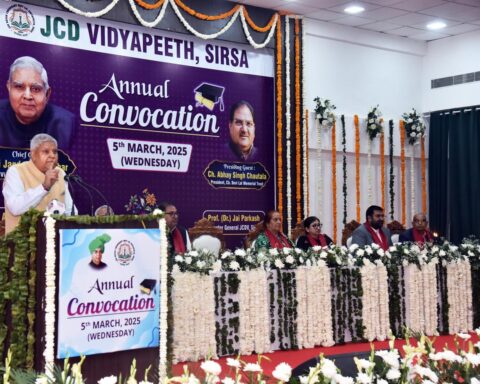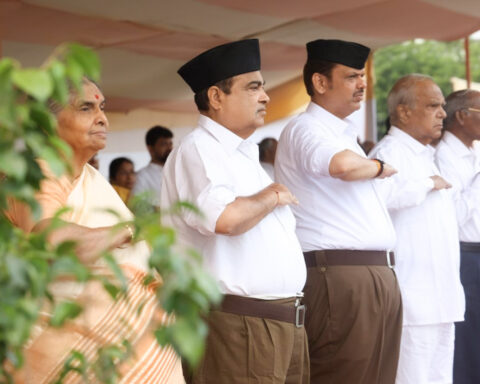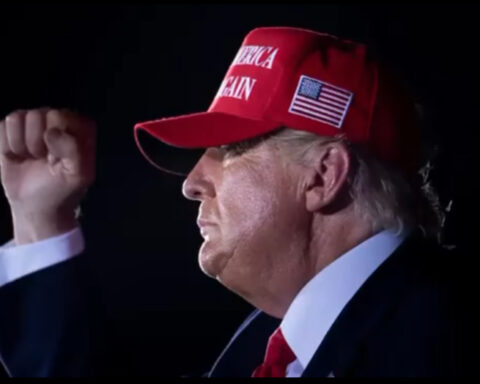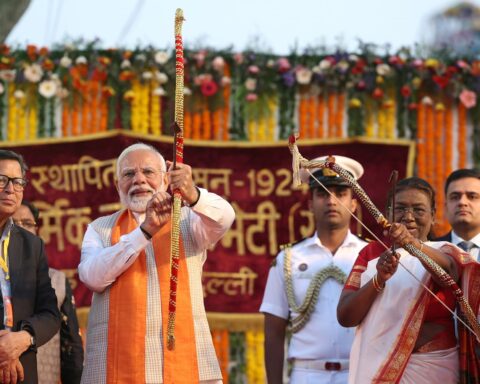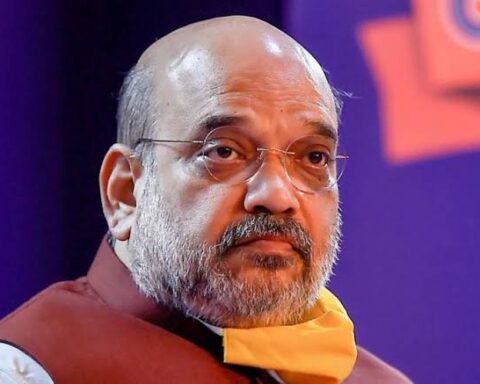Shimla/TNF
In an effort to enhance regulation and transparency among street vendors/Dhabas and food establishments, Himachal Pradesh is set to introduce a new mandate that will require restaurants, fast food outlets, and street vendors to display nameplates outside their establishments. Urban Development Minister Vikramaditya Singh made this announcement on Wednesday, September 25, during a press conference in Shimla. He revealed that, following the recent example set by Uttar Pradesh, the state will issue photo-embedded licenses to street vendors. These licenses must be displayed prominently outside their stalls, ensuring identification and accountability.
The decision follows an announcement from the Uttar Pradesh government, which introduced similar measures on Tuesday, September 24. Minister Singh emphasized that the Himachal Pradesh government is taking cues from UP’s approach and is committed to improving transparency, hygiene, and regulation, especially in food-related businesses.
Ensuring Cleanliness and Hygiene
Vikramaditya Singh underscored the importance of cleanliness, particularly for those engaged in the food business. He noted that there have been widespread concerns regarding the hygiene standards of street vendors and other food establishments. “Those selling food items must pay close attention to maintaining proper cleanliness standards,” Singh stated, acknowledging the public’s feedback on the issue.
The Urban Development Department has been directed to enforce this new rule. Vendors and food outlets will now be obligated to display their nameplates, which will not only carry their names but also important details such as their license and identification information. “This step is crucial for ensuring hygiene and transparency,” Singh explained.
A Street Vendor Committee has already been formed, through which the photo-embedded licenses will be issued. The minister confirmed that any street vendor wishing to operate within the state will have to obtain this license and comply with the new rule.
Addressing the Street Vendor Controversy
The issue of regulating street vendors has been a contentious topic in Himachal Pradesh for several years. The debate intensified after the controversial Sanjauli Mosque incident, which brought to light accusations of preferential treatment toward vendors from a specific community. In response, during a state assembly session, Panchayati Raj Minister Aniruddh Singh had suggested that only Himachali residents be allowed to operate as street vendors.
However, Vikramaditya Singh clarified that such a rule would not be implemented, as there is no legal provision to restrict street vendors based on residency. “We are not going to take any decisions that could potentially face legal challenges in court,” Singh assured. He emphasized that the government is working on a more inclusive policy that will not only regulate street vendors but also provide opportunities to the poor, Scheduled Castes (SC), Scheduled Tribes (ST), and widows.
The Sanjauli Mosque Controversy
The regulation of street vendors in Himachal Pradesh took center stage following the Sanjauli Mosque controversy, which triggered a series of protests across the state. On August 31, a brawl between two groups, which included street vendors, escalated in Shimla’s Mehli area. Several of the accused sought refuge inside the Sanjauli Mosque. Following their arrest, protests broke out, particularly from Hindu organizations and local traders, demanding the demolition of the mosque and verification of non-Himachali residents involved in street vending.
On September 5, demonstrations were held in Sanjauli and Chaura Maidan, where protestors renewed their call for the demolition of the mosque, alleging that it was built illegally. The protests reached a peak on September 11, when large crowds gathered in Sanjauli-Dhali, leading to clashes with the police, who were forced to use mild force and water cannons to disperse the crowd. Following the unrest, traders across the state kept their shops closed in solidarity with the protests, while rallies continued to demand the removal of illegal structures and stricter verification of street vendors from outside the state.
Formation of Street Vendor Policy
The Sanjauli incident also became a point of discussion during the Monsoon Session of the state assembly, which led to the government’s decision to create a comprehensive street vendor policy. In response to the situation, Speaker Kuldeep Singh Pathania established a Street Vendor Committee. The committee is chaired by Industry Minister Harshwardhan Chauhan and includes Panchayati Raj Minister Aniruddh Singh, PWD Minister Vikramaditya Singh, Congress MLA Harish Janartha, and opposition MLAs Anil Sharma, Satpal Singh Satti, and Randhir Sharma.
This committee is tasked with developing a policy that not only regulates the vendors but also ensures that marginalized groups, such as the poor, SCs, STs, and widows, have fair access to street vending opportunities.
Minister Singh assured that the policy would balance the need for regulation with the rights of vendors, ensuring no disruptions to livelihoods while maintaining law and order. The new measures, including the mandatory display of nameplates, are part of a broader effort to address the long-standing disputes and ensure a cleaner, more transparent system for street vendors across the state.

